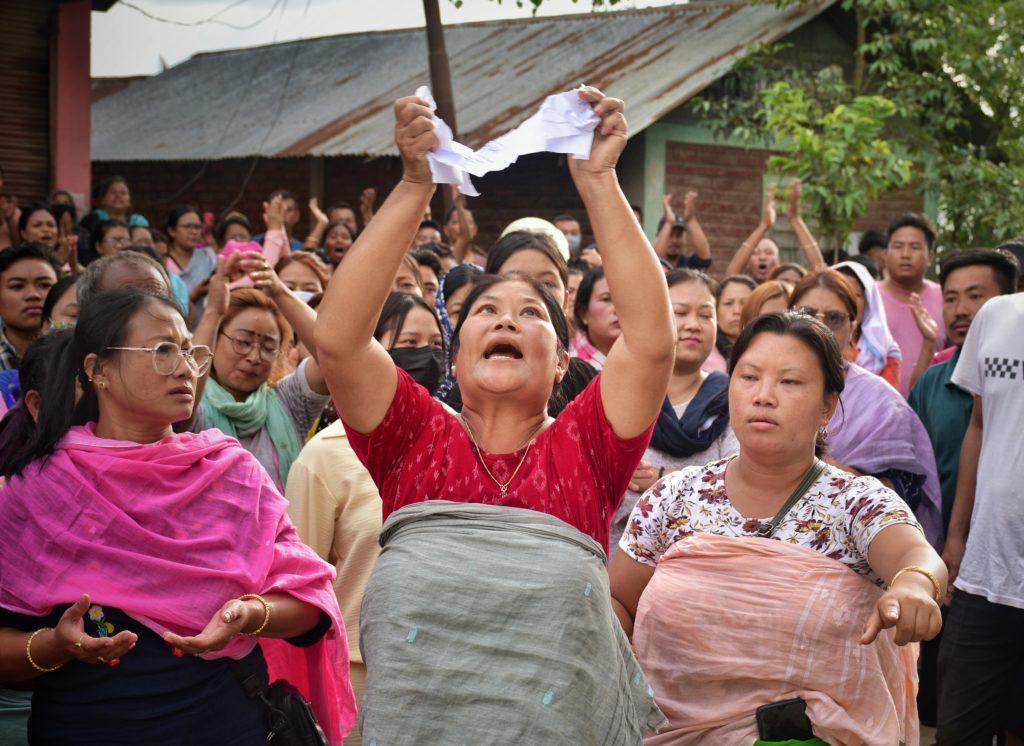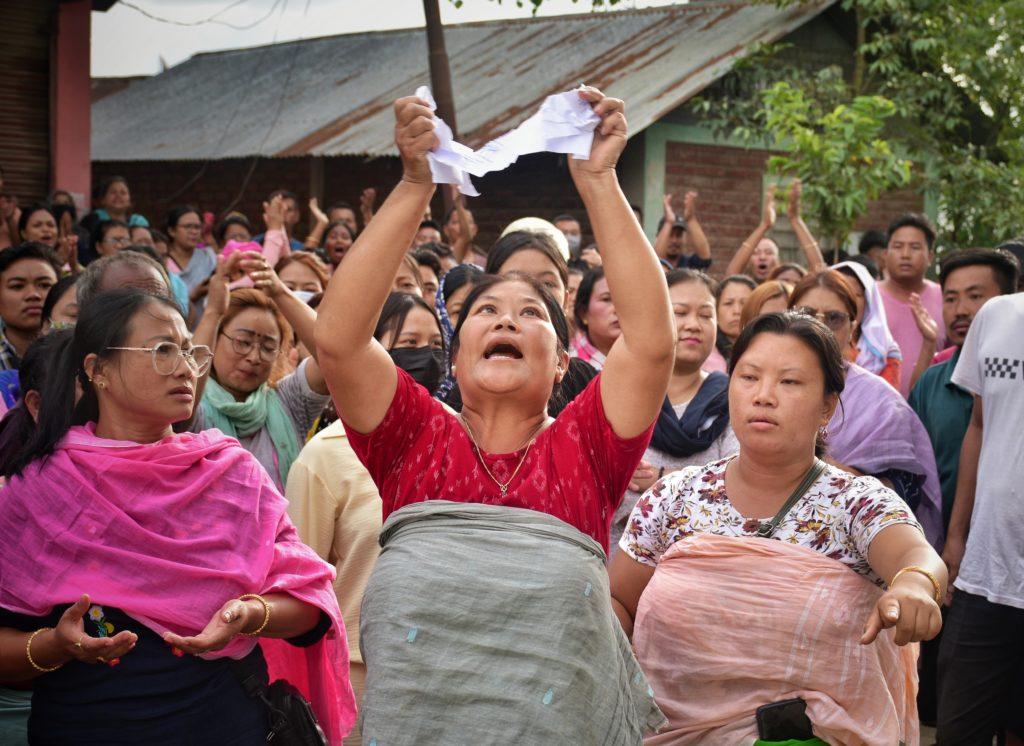
In a world rife with conflicts and wars, the (ongoing) violence in Manipur, India, has largely faded from the international spotlight. Even so, the effects on local people, particularly women, remain severe and devastating. At the same time, though, women are leading the charge to promote peace. This article will highlight the critical role that women play in promoting peace amid this unrest.
The conflict in Manipur between the Kuki and Meitei communities has deep historical roots, but the most recent escalation (which also attracted worldwide attention) occurred in May 2023. The violence erupted over issues of land rights, ethnic identity, and political representation. The immediate trigger was a protest by the Meitei community demanding Scheduled Tribe status, which resulted in conflict with the Kuki community. The conflict escalated into widespread violence, affecting thousands and claiming hundreds of lives. It’s thus no exaggeration to state that the (predominantly Christian) Kukis and (mostly Hindu) Meiteis are engaged in a bloody and protracted (civil) war.
More than a year later, the situation on the ground remains dire. In September 2024, Kuki militants launched a rocket attack in a town near the initial conflict zone, killing an elderly man and injuring five family members. The people in the area have been living in constant fear and anxiety as a result of these incidents. For over a year now, there have been daily reports of bombings, killings, and attacks on civilians. Manipur’s economy, social fabric, and educational system have all suffered greatly as a result of the ongoing conflict. Communities have been shattered, businesses destroyed, and schools disrupted. The state’s social and cultural life has suffered greatly, which will have long-term effects on its stability and growth.
Many people are psychologically traumatized as a result of the conflict, which can lead to post-traumatic stress disorder (PTSD), anxiety, or depression. Insomnia and other sleep disorders have been caused by chronic stress and anxiety. Women in relief camps face even worse living conditions, with cramped quarters and inadequate food, medical care, and sanitation. For both adults and children, the trauma of displacement, combined with the anxiety of an unknown future, creates a difficult environment. The lack of privacy and sanitary facilities in relief camps exacerbates health issues, particularly among pregnant and nursing mothers. Their predicament is exacerbated by a lack of food and medical care, which impairs their physical health.
The conflict has also seen an alarming increase in sexual violence. Women have been subjected to horrifying acts of violence, such as rape and assault, with the intent to terrorize and humiliate. In one of the most shocking incidents, on 4 May 2023,two Kuki women were paraded naked by a mob of Meitei men – one of them was allegedly gang-raped. These acts of sexual violence are used as weapons of terror, exacerbating the trauma and fear among the affected communities. This has clearly also negatively impacted women’s health. The Manipur people’s dissatisfaction and hopelessness have only increased due to the perceived inaction of the central government.
The central government frequently responds to outbreaks of violence by imposing internet bans, which have a significant impact on those living outside Manipur. Students, for example, who rely on their families for financial support may experience delays in receiving funds, limiting their ability to pay for tuition, rent, and other expenses. This disruption exacerbates the already high stress and uncertainty levels among the displaced population.
Despite these challenges, women are now recognized as key figures in promoting peace. They take on the role of protectors, staying awake at night to protect their communities from potential attacks as a result of the villagers’ ongoing fear and anxiety. Even though their physical and mental health suffers as a result of their constant watchfulness, which eventually wears them out and affects their well-being, they refuse to give up to save their community.
Women have made significant contributions to peacebuilding in Manipur. They have formed groups and organizations (eg. the activist women’s group Meira Paibi), which are critical in resolving disputes and promoting communication between opposing parties. These women frequently act as peacemakers, using their power to prevent further abuse and protect their communities. Many civil society organizations that promote peace and reconciliation lend their support to their endeavors.
Another noteworthy instance of women working in peace-building is the Manipur Women Gun Survivors Network (MWGSN). This network, which was started by Binalakshmi Nepram, assists women who have lost family members to gun violence. MWGSN helps these women rebuild their lives by offering them employment opportunities, psychosocial support, and counseling. Present in 300 villages throughout Manipur and Northeast India, the network has already aided over 5,000 women, increasing their income levels and giving them a sense of support and community.
Nevertheless, the fundamental problems causing the conflict cannot be solved by these grassroots initiatives alone. To put an end to the violence and restore order to the state, the central government must act quickly and forcefully. The chances of an enduring peace are still very slim in the absence of such intervention.

Women protesters demonstrating against the harsh actions of security personnel in front of a police station in Imphal. (credits picture: Robinson Wahengbam)
Women´s role in peacebuilding will be even more effective if they also advocate for a nonviolent parenting style. Peace researcher Franz Jedlicka explains the linkages in “The forgotten Peace Formula”.